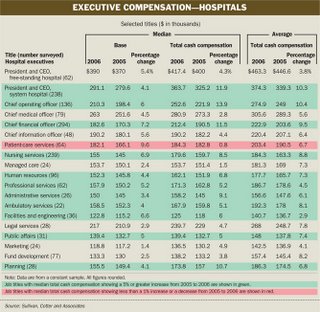Attendees:
Senator Connie Sipes
Rep. Bill Cochran
Pediatricians representing all practices in the surrounding 5 counties were present
Representatives from Molina
Representatives from Harmony Health
Chris Morris from the Tribune
One local Cameraman from a news agency
Summary:
Beginning around 2005, the State of Indiana took about 90% of the dollars it spent in 2004 and paid it to 5 Managed Care Organizations (MCO’s) in order to have them manage the Medicaid population. These 5 MCO’s competed with each other for both patients and for physicians to be part of their provider panel.
A few months ago, the State asked for current MCO’s in Medicaid as well as others to submit a “Request for Services” proposal for 2007. They were told that there would be one MCO selected statewide.
When information was evaluated and completed, the committee selected three MCO’s and Harmony, Molina, and Care Source were excluded. Anthem was one of the three selected even though they have never provided for Medicaid services.
This has serious implications for Southern Indiana as the vast majority of patients on Medicaid are either in Harmony or Molina.
Harmony and Molina are both appealing the selections and therefore the final recommendation to the State by the committee is placed on hold.
The State has already been on a corrective action plan by CMS because of access problems for patients and this proposed change will only make access a much larger problem.
The major problems discussed at the meeting dealt with the concerns of how 220,000 Medicaid patients and every physician in our area will be able to meet, negotiate, contract with the three MCO’s that currently do not serve our area. It takes an absolute minimum of 3 months to contract with an Insurance company if everything goes perfectly. It will be impossible to do this in the time frame the State has set.
The goal was to have patients choose the MCO rather than the provider and the State wanted every provider to sign up with each of the three MCO’s. But the consensus at the meeting was that physicians would only sign up for one if they even elected to continue in the program. These MCO’s each add a tremendous cost to the office overhead because of all the restrictions in what you can order, formularies, etc. None of the physicians planned to sign up with all of them.
Therefore, patients will normally want to see which MCO their doctor is with before they choose. If the MCO’s have to contract with physicians first before they start enrolling patients, it will be impossible to complete this by January. This will leave patients with no provider and no knowledge of how to access their care. Many will continue to over-utilize the Emergency Rooms and Urgent Care Centers adding more cost to the already overburdened system.
The additional concern is that these MCO’s have consistently been slow to pay and getting a consistent cash flow from them has been difficult. Changing to another new MCO will exacerbate this problem and for some of the practices that have 50% or more of Medicaid as their patient base. Medicaid rates are already the lowest and have not been changed since 1989. None of the proposed new MCO’s pay rates are as good as Molina or Harmony and this cut in addition to the other problems will cause many pediatricians to financially fail. Some stated they could not make payroll if this were to happen.
Mr. Cochran and Senator Sipes listened and asked several questions trying to get a better understanding, but in the end stated there wasn’t much they could do legislatively at this point. We did discuss filing a legal injunction to hold the implementation of the proposed change.
Results of the meeting were as follows:
• Mr. Cochran and Senator Sipes were to speak with the Commission Chairman and ask for a meeting where he would come to Southern Indiana and speak with us.
• Get dates for the Medicaid Oversight Committee where physicians could attend and testify.
• Mr. Cochran and Senator would speak with the Governor personally
• Physicians would contact the ISMA and AAP for their assistance and would also inform the local hospitals of the potential problems that will affect them through lack of coverage for Medicaid patients.
















